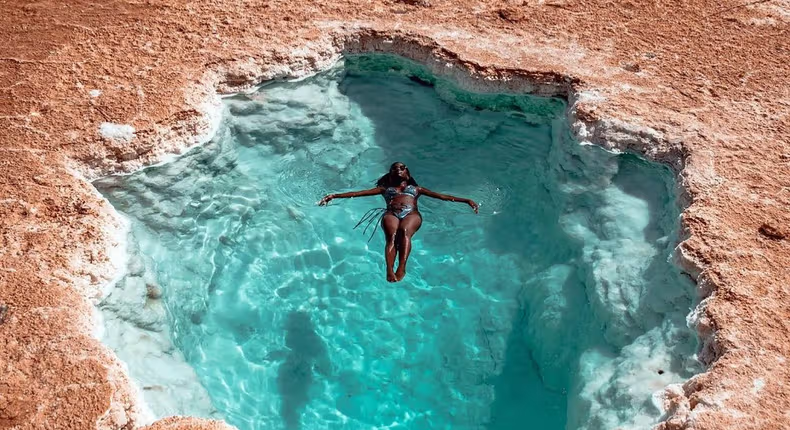It’s impossible to drown even if you can’t swim in these 5 water bodies
Did you know that there are some bodies of water that you can’t drown in, even if you can’t swim?
Water bodies with a high salt content make it almost impossible for people to drown. This is because water bodies with high salt content are denser than freshwater, causing objects (like humans) less dense than salty water to float.
Although the Dead Sea is the most popular water body where you can just float, there are still several other places where drowning is almost impossible.
1. Siwa Oasis, Egypt
In Egypt, Siwa Oasis beckons has hundreds of salt pools, creating a surreal landscape where sinking is impossible due to the high salt concentration. The best time to visit is between October and March, when temperatures are mild. It is approximately 562 kilometres (349 miles) from Cairo; the journey to Siwa takes about 14 hours by bus
2. Dead Sea, Jordan/Israel
The Dead Sea’s distinct lightness creates a bizarre sensation. You can simply relax in the waters, float away with your legs up, and allow nature to do its thing.
The famous Dead Sea, sometimes known as the “Salt Sea,” is a must-see attraction. This salt lake, located between Jordan and Israel and predominantly fed by the Jordan River, has extremely high salinity levels, making it unfriendly to marine life. You won’t see colourful fish or corals here.
3. Great Salt Lake, Utah, USA
As the largest salt lake in the Western Hemisphere, the Great Salt Lake is a prominent landmark in northern Utah. Its turquoise waters and white-sand beaches are a sight to behold, drawing travellers seeking nature and outdoor adventures. There, you will see a beautiful sunset and float away in the lake.
4. Laguna Cejar, Chile
In the Atacama Desert, there is Laguna Cejar, a stunning lagoon nestled within the salt flats. Here, visitors can float effortlessly on the water’s surface, thanks to its high salt content. However, personal belongings can sink easily, unlike humans.
5. Jalapão State Park, Brazil
Jalapão State Park in Tocantins, Brazil, is the largest savanna in South America. There are majestic waterfalls, towering sand dunes, and natural springs known as fervedouros, where sinking is also impossible.
Unlike Laguna Cejar and the Dead Sea, it’s not the salt content that keeps visitors afloat, but the natural springs emerge from underground rivers, exerting pressure that prevents sinking. You also get the sensation that feels like gentle leg massages.
Would you love to visit these countries?

